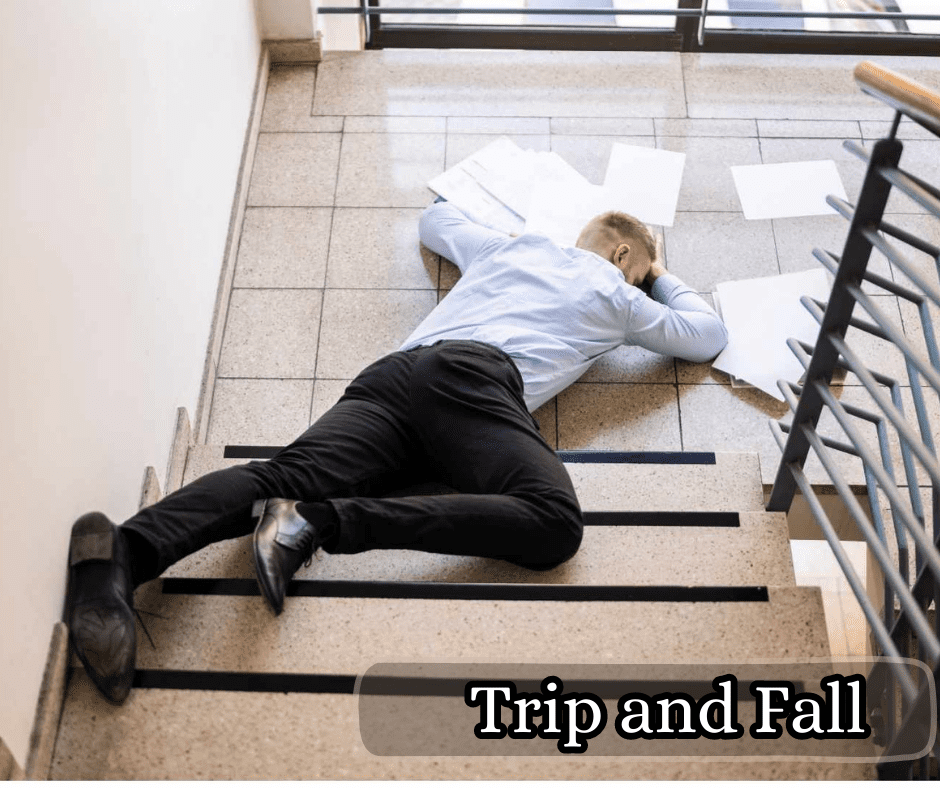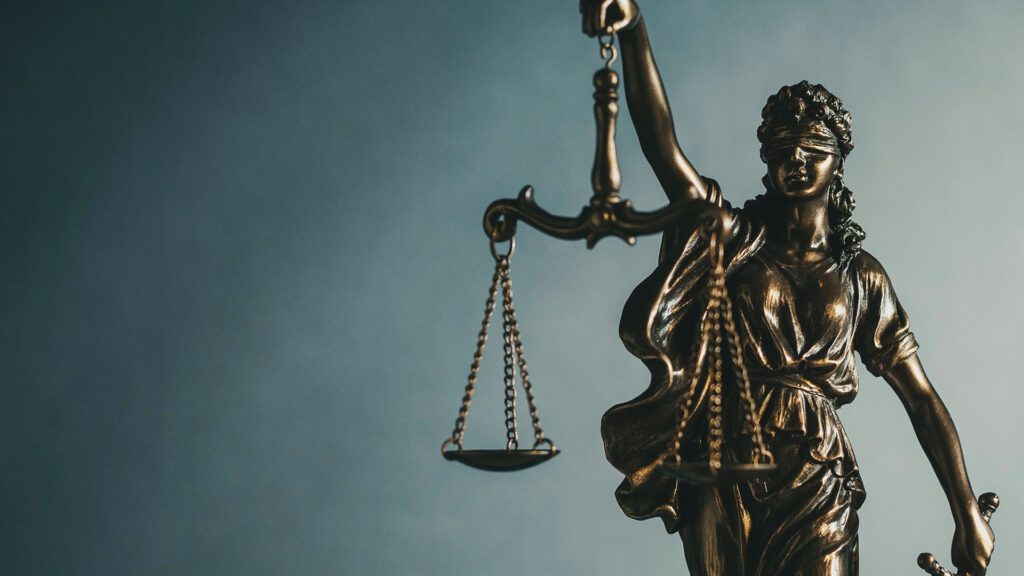Can I Be Compensated For Tripping And Falling On Public Property?
A trip and fall in a public setting can be painful and socially awkward. But have you ever thought about the legal repercussions of a slip and fall? Understanding your legal rights becomes crucial if you find yourself in this situation.
Depending on the specific circumstances, you might have the option to seek compensation for the injuries you sustained and the associated losses you incurred.
Getting compensation in cases where your fall occurred on public premises can pose challenges, as the government could potentially be the entity against which you need to lodge a claim.

If you’ve sustained a trip and fall, or any injury resulting from an accident on government-owned property, it’s possible that the government body could bear responsibility for your injuries. It’s important to note that this isn’t universally applicable—there are instances where the government entity might not be liable. However, if you can demonstrate their negligence, you may have the opportunity to pursue a claim against them to secure compensation for your injuries. This is where you need an experienced injury attorney in Cookeville to fight on your behalf.
Note, it is essential to acknowledge that trip-and-fall cases on government property tend to be more intricate than regular trip-and-fall cases. Engaging an experienced personal injury attorney could be beneficial to navigate this complexity, ensuring adherence to the appropriate procedures and protecting your interests.
Premises Liability in Tennessee
Premises liability holds property owners responsible for maintaining safe conditions on their property. In the case of public property, such as government-owned buildings, parks, sidewalks, and public facilities, the government entity or agency responsible for maintaining the property may be held liable for injuries due to hazardous conditions.
Establishing Liability
To establish liability in a tripping and falling case on public property, the following elements generally need to be proven:
- Duty of Care: The government entity responsible for the property must owe a duty of care to maintain the property in a reasonably safe condition for the public.
- Negligence: It must be demonstrated that the government entity failed to fulfill its duty of care by allowing a hazardous condition to exist on the property.
- Causation: There must be a direct link between the hazardous condition and the injury suffered by the victim.
- Notice: It may be necessary to prove that the government entity had prior knowledge of the hazardous condition or should have reasonably known about it.
Immunity and Notice Requirements
It is important to note that government entities often have certain immunities and notice requirements that may impact a personal injury claim. The Governmental Tort Liability Act (GTLA) governs claims against government entities in Tennessee. Under the GTLA, specific notice requirements must be followed, including providing written notice of the injury within a certain timeframe.
Comparative Fault

Tennessee follows a comparative fault system. This means that the injured party’s negligence might affect the compensation they receive.
If the injured party is found to be partly responsible for their injuries, their compensation may be reduced to their level of fault.
What Should You Do After a Trip and Fall on a Public Property?
Experiencing a trip and fall on public property can be disorienting and potentially lead to injuries. Taking appropriate actions after such an incident is crucial to protect your well-being and preserve your legal rights. Here’s a step-by-step guide on what you should do after a trip and fall on public property:
- Get Medical Attention: Your health and safety are the top priorities. If you are injured, seek medical attention immediately. Even if your injuries seem minor, getting a professional evaluation is important as some injuries may not be immediately visible.
- Document the Scene: If you’re physically able, document the scene of the incident. Take photos or videos of the area where you fell, including any hazards or conditions that contributed to the fall. These visual records can serve as valuable evidence later.
- Report the Incident: Notify the appropriate authorities about the incident. If you fell on government-owned property, report the incident to the relevant government agency or entity responsible for the property’s maintenance. Ask for a copy of the incident report or obtain a reference number for your records.
- Gather Information: Collect information from witnesses who may have seen the incident or the hazardous condition. Get their names, contact information, and any statements they are willing to provide. Their testimonies can help establish the circumstances of your fall.
- Consult an Attorney: Contact Burnett Law, personal injury attorney. We can help you understand your legal rights, assess the viability of your claim, and guide you through the process of seeking compensation.
How Can Burnett Law Help You Get Compensation After A Trip And Fall On A Public Property?
At Burnett Law, we are committed to helping individuals like you seek the compensation you deserve after a trip and fall incident on public property. Our experienced team of personal injury attorneys understands the intricacies of Tennessee law and the unique challenges associated with pursuing a claim against government entities. Here’s how we can assist you in seeking compensation:
- Case Evaluation: Our first step is to evaluate your case’s details thoroughly. We’ll listen to your account of the incident, review any available evidence, and assess the potential liability of the government entity responsible for maintaining the public property.
- Investigation: Our legal team will conduct a comprehensive investigation to gather evidence, including photographs of the hazardous condition that caused your fall, witness statements, accident reports, and any available surveillance footage. This evidence will help establish the government entity’s negligence and strengthen your claim.
- Notice Requirements: In Tennessee, specific notice requirements must be met when pursuing a claim against a government entity. We will ensure that all necessary notifications are properly filed within the required timeframe to preserve your right to seek compensation.
- Legal Strategy: Based on the evidence gathered and the circumstances of your case, we will develop a strategic legal approach. This may involve negotiating with the government entity’s representatives, filing a lawsuit if necessary, and advocating on your behalf throughout the legal process.
- Expert Consultation: In some cases, expert testimony may be crucial to establish the government entity’s negligence or the extent of your injuries. We have access to a network of qualified experts who can provide professional opinions and support your claim.
- Calculating Damages: Our team will work to accurately assess the full extent of your damages, including medical expenses, lost wages, pain and suffering, emotional distress, and any future expenses related to your injuries.
- Negotiation and Settlement: We will negotiate with the government entity’s representatives or insurers to pursue a fair settlement. Our goal is to secure maximum compensation that adequately reflects the impact of the incident on your life.
Contact a Tennessee Trip and Fall Lawyer Today
Filing a trip and fall lawsuit against a government entity is complex. Burnett Law advocates for individuals who have suffered injuries from trips and falls. We have over 26 years of legal experience and are the Official Cumberland County Attorney. Your injury is personal to us, and we are dedicated to helping the hurting. Our unwavering focus on our clients drives us to achieve remarkable outcomes, genuinely impacting and improving lives. Contact us at (931) 484-7549 for a free consultation.
Disclaimer: The information contained in this blog or on this website is provided for informational purposes only, and should not be construed as legal advice on any specific subject matter. No person should act or refrain from acting due to any content included in the site without seeking legal or other professional advice on the particular facts and circumstances at issue from an attorney licensed in the person’s state. The Firm expressly disclaims all liability in respect to actions taken or not taken based on any or all the contents of this blog or website.
Burnett Law
Search Posts
Recent Posts
- How to Choose the Right Personal Injury Attorney After a Motorcycle Crash January 16, 2024
- Navigating Insurance Claims After a Car Accident: A Step-by-Step Guide January 9, 2024
- Understanding Social Security Disability Hearings in Tennessee January 5, 2024
- The Impact of Work History on Social Security Disability Benefits December 25, 2023
- Gratitude: A Core Value at Burnett Law December 20, 2023
Categories
Subscribe!
Thanks for subscribing! Please check your email for further instructions.
